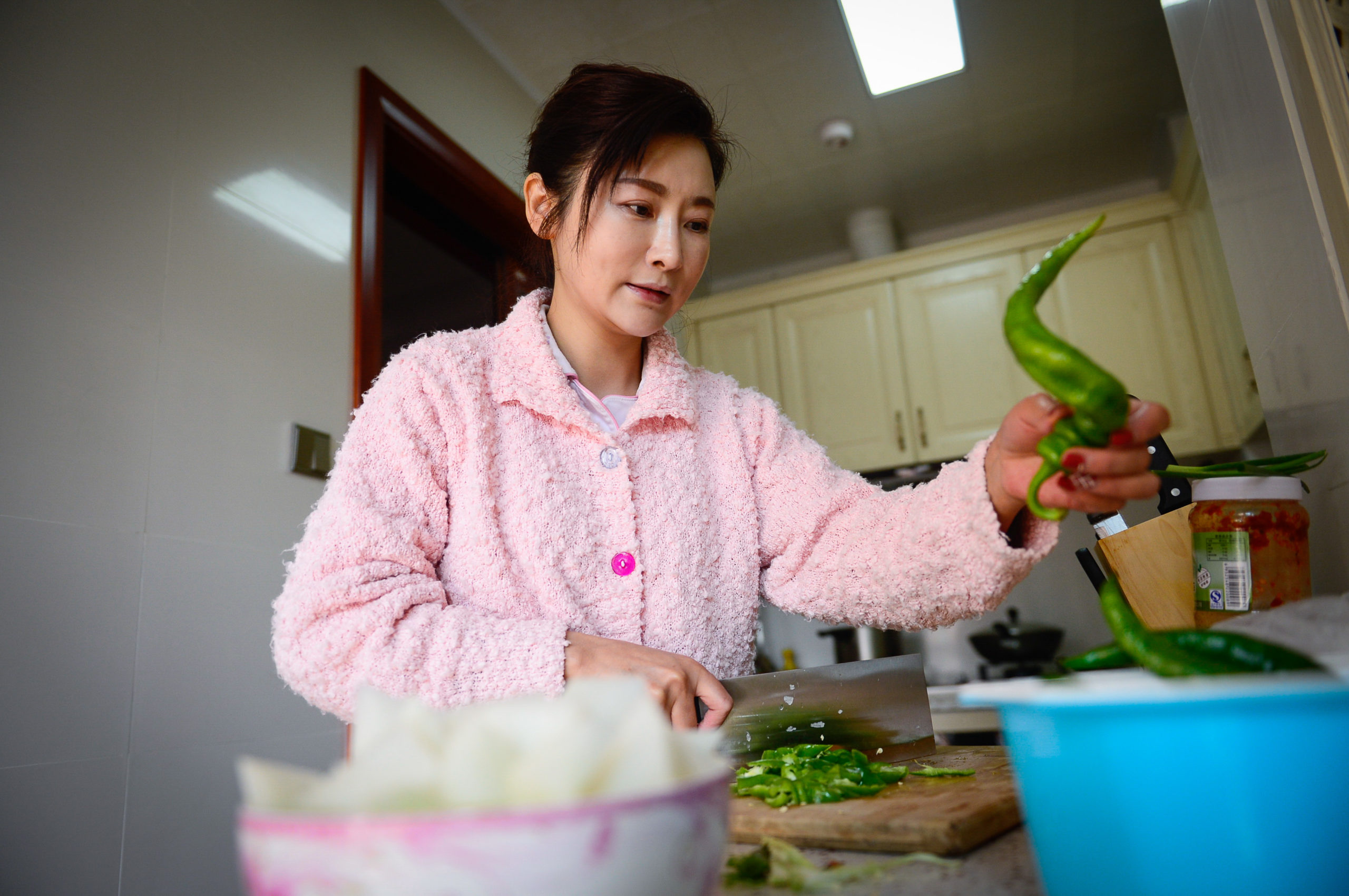Beijing man ordered to pay ex-wife $7,700 for five years of housework
A court awarded a woman compensation for her domestic labor in a divorce settlement. Some social media users saw it as a victory for women’s rights, others said it did not go far enough.

In acknowledgement of housework’s “intangible property value,” a court in Beijing has ordered a husband to pay his divorce-seeking wife 50,000 yuan ($7,743) in compensation for five years of unpaid labor at home during their marriage. The groundbreaking decision has been described by Chinese internet users as paving the way for better legal protection of women in divorce cases and a more balanced division of domestic work, which has been disproportionately taken on by women in China.
According to court documents obtained by China Women’s News, the official publication affiliated with the state-controlled All-China Women’s Federation, the couple, identified only as Mr. Chén 陈 and Ms. Wáng 王, tied the knot in 2015 and had one child. Since they separated in 2018, Chen had filed three divorce suits, but the first two attempts led nowhere, with him voluntarily dropping one case and the other one being rejected by a court for unspecified reasons.
In October 2020, Chen submitted his most recent divorce petition, including a request for full custody of his son and a division of the couple’s joint properties and debts. Wang initially refused to end the marriage during a hearing at Beijing’s Fangshan District Court, claiming that she was still in love and their relationship was salvageable.
But she later agreed, demanding an equal split of the couple’s marital assets and asked for 160,000 yuan ($24,778) in compensation for all the housework and childcare she carried out when they were together. Wang told the court that her husband persistently slacked off on domestic work throughout their marriage, as well as hurting her by being unfaithful.
In its ruling, the Beijing court granted Wang custody of the child and ordered the husband to pay her monthly child support of 2,000 yuan ($310), as well as a onetime payment of 50,000 yuan ($7,743) for the housework she had done.
In an interview (in Chinese) with China National Radio, Féng Miǎo 冯淼, the judge who presided over the court case, said that the decision was made on the grounds that housework may constitute intangible property value, even though it is rarely reflected in a couple’s physical assets. Explaining the amount of the compensation, Feng cited a combination of factors, including the husband’s income levels and the average cost of living for a family in Beijing.
Also playing a part in the court’s ruling was China’s first-ever Civil Code, which came into effect at the beginning of this year. Under the new provisions, a spouse is entitled to claim compensation in a divorce if he or she does the lion’s share of duties at home, including raising children and looking after elderly family members. Previously, such compensation could be sought if there was a prenuptial agreement, which is not a common practice in China.
On Chinese social media, the ruling has been heralded by many as a major advancement in building awareness and recognition of housework, which is too often invisible, uncounted, and underappreciated in Chinese families and society at large. “Couples should divide household labor equitably. If a man can’t get it together to help out at home, he’s an asshole. Period,” a Weibo user wrote (in Chinese). Another shared the sentiment, saying (in Chinese), “Marriage is never a valid excuse for men to exploit women’s unpaid labor.”
However, some argued that the compensation was inadequate, given the high cost of hiring domestic help in Beijing. “Wang deserved more, in my opinion. And bear in mind that the husband didn’t originally offer to give her money,” a Weibo user commented (in Chinese).
Around the world, women collectively spend billions more hours than men on domestic chores and family care. China is no exception: According to a 2018 survey by the National Bureau of Statistics, Chinese women spent an average of two hours and six minutes on housework each day, nearly three times that of men.
The conversation around Wang’s divorce is closely tied to a broader debate that Chinese people are having about the economics and social implications of women being full-time housewives. Last year, Zhāng Guìméi 张桂梅, who founded China’s first public high school that provides free education for girls, made waves on the Chinese internet after sharing a story of her lambasting a former student who gave up her career to become a stay-at-home mom. While Zhang’s supporters said that women taking on the role of homemaker was essentially how they conformed to traditional gender roles, others argued that housework should be considered a “real job” in its own right.






